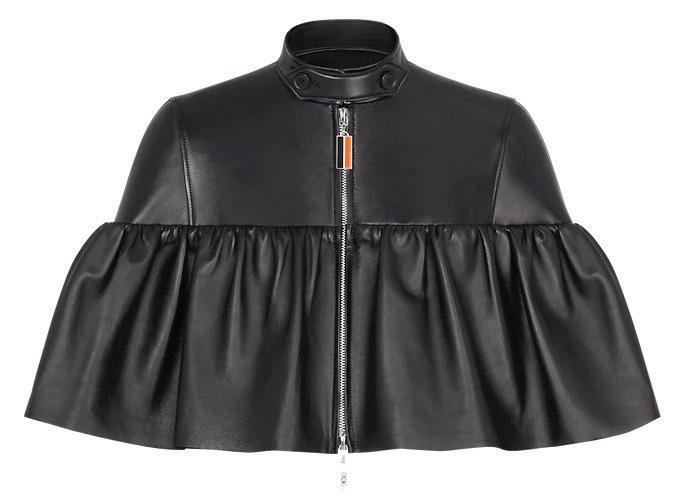A DVERTI S EMENT
Taxes and Retirement W
ELCOME to the latest editions of Fiscal Fitness! Spring is finally in the air at the Jersey Shore with warmer weather quickly approaching. It has been a full year since the market bottom and the start of the official lockdown, but what a difference a year can make. The market has done a complete 180 reversal with equity indices near or hitting record highs1. Unfortunately, far too many investors pulled out of the markets during the pandemic, never fully participating in the recovery. Many at or near retirement are wondering what to do next.
carefully and consider how the new rules affect inheritances and taxes, especially for high value IRAs. Strategies that include trusts as beneficiaries also need to be reviewed. The new rules make Roth IRAs more attractive and depending on your tax situation, a Roth Conversion could make sense. The beneficiary of a Roth IRA, which generally provides tax-free distributions, may want to leave the account intact for up to 10 years, allowing it to benefit from tax-free growth for as long as possible.
THE SECURE ACT ushered in many changes in the way we save for retirement and could have a dramatic impact on IRA estate strategies. IRAs and 401ks are often one of the easiest ways to build a large nest egg for your retirement as well as an opportunity to leave a legacy for loved ones. A provision of the Secure Act eliminated the “stretch IRA”, a strategy allowing an IRA to continue benefiting from tax-deferred growth, potentially for decades. Unfortunately, most non-spouse beneficiaries, including children and grandchildren, can no longer “stretch” distributions over their lifetimes.
TO ROTH OR NOT TO ROTH Now may be the time to consider contributing to a Roth IRA as contributions are tax free when withdrawn and earnings are tax free if the distribution is “qualified”3. Many employers now offer a Roth 401(k) option allowing you to make after-tax contributions that are not subject to income limitations. This is a great opportunity for high income earners and should not be overlooked. Other strategies to consider include converting a traditional IRA to Roth, referred to as a Roth Conversion4. NOTE: Roth IRAs are not subject to RMDs (required minimum distributions) during the lifetime of the owner.
THE NEW RULES For retirement assets inherited January 1, 2020 and later, non-spouse beneficiaries are required to deplete inherited accounts within 10 years of the owner’s death.2 If, for example, my son inherits my IRA, he has 10 years to deplete the entire account upon my passing. Not only would this shortened distribution period result in unanticipated and potentially large tax bills, would I really want him to spend down his inheritance that I worked so hard to accumulate? Note: Key exceptions apply to those who are known as “eligible designated beneficiaries”. Spousal beneficiaries can wait until age 72 to begin RMDs. Retirement account owners should review their beneficiary designations
Footnotes:
With so many changes taking place and uncertainties about potential tax hikes, many individuals are questioning if they will have enough money to last throughout their retirement years. The value of financial planning has never been more important. Collaborating with an experienced and qualified CERTIFIED FINANCIAL PLANNER Professional™ can make all the difference in your financial future. Together we can make it happen…
Debra Fournier CERTIFIED FINANCIAL PLANNER™ Certified Divorce Financial Analyst™
1 As of March 24, 2021, 2 Exceptions apply; 3Roth IRA subject to income limitations; Roth IRA beneficiaries can withdraw contributions tax- free at any time. The 5- year rule applies if Roth IRA less than 5 years old; taxes due on any earnings withdrawn. 4 Traditional IRA account owners have considerations to make before performing a Roth IRA conversion. These primarily include income tax consequences on the converted amount in the year of conversion, withdrawal limitations from a Roth IRA, and income limitations for future contributions to a Roth IRA. In addition, if you are required to take a required minimum distribution (RMD) in the year you convert, you must do so before converting to a Roth IRA.
About THE AUTHOR DEBRA FOURNIER, CERTIFIED FINANCIAL PLANNER™ and Certified Divorce Financial Analyst™, has been providing comprehensive wealth management services to families and independent women for over 25 years. Recognized as an experienced and knowledgeable professional in the areas of financial transitions and divorce financial planning, her guidance is often sought where there are complicated financial issues, significant assets or an imbalance in financial knowledge between divorcing couples. Debra has been quoted in Kiplinger’s Personal Finance Magazine and AOL Daily Finance, appeared numerous times on Good Day New York and has been featured in the Asbury Park Press section Getting Ahead. Looking for a more personalized approach to your finances? We invite you to call us at 732-800-8400 or email debra.fournier@lpl.com and discover how we can help you pursue your financial goals.
2006 Highway 71, Suite 1 Spring Lake, NJ 07762 732-800-8400 | 732-800-0622 fax seaviewwealth.com
Securities offered through LPL Financial, a Registered Investment Advisor. Member FINRA/SIPC Content in this material is for general information only and not intended to provide specific tax advice or recommendations for any individual. The economic forecasts set forth in this material may not develop as predicted and there can be no guarantee that strategies promoted will be successful.
SeaviewWealth_FP_0421_v2.indd 1
4/6/21 9:35 AM








